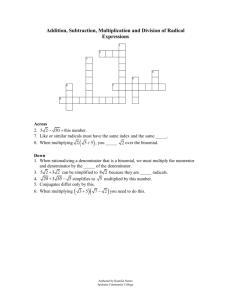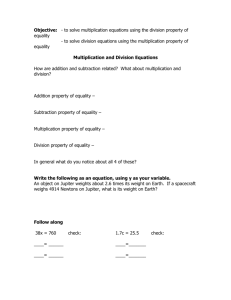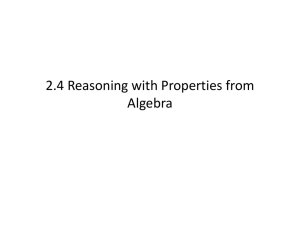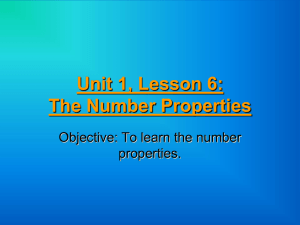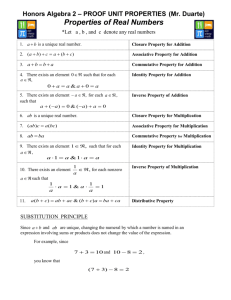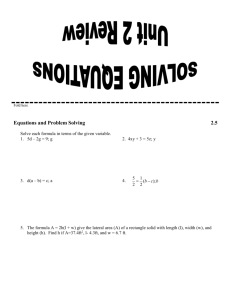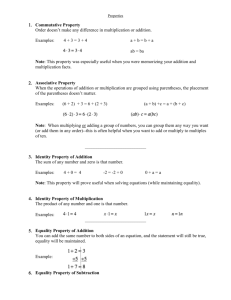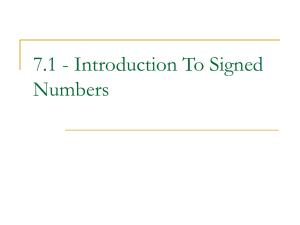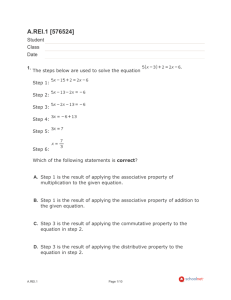To Solve Linear Equations
advertisement
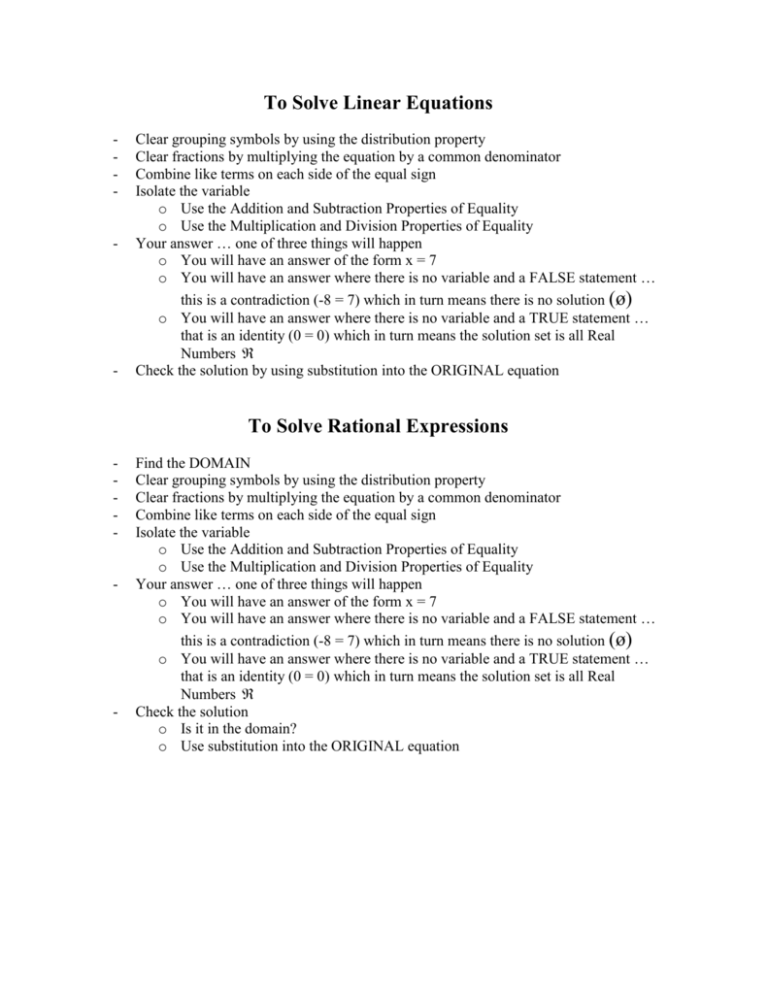
To Solve Linear Equations - - - Clear grouping symbols by using the distribution property Clear fractions by multiplying the equation by a common denominator Combine like terms on each side of the equal sign Isolate the variable o Use the Addition and Subtraction Properties of Equality o Use the Multiplication and Division Properties of Equality Your answer … one of three things will happen o You will have an answer of the form x = 7 o You will have an answer where there is no variable and a FALSE statement … this is a contradiction (-8 = 7) which in turn means there is no solution (ø) o You will have an answer where there is no variable and a TRUE statement … that is an identity (0 = 0) which in turn means the solution set is all Real Numbers Check the solution by using substitution into the ORIGINAL equation To Solve Rational Expressions - - - Find the DOMAIN Clear grouping symbols by using the distribution property Clear fractions by multiplying the equation by a common denominator Combine like terms on each side of the equal sign Isolate the variable o Use the Addition and Subtraction Properties of Equality o Use the Multiplication and Division Properties of Equality Your answer … one of three things will happen o You will have an answer of the form x = 7 o You will have an answer where there is no variable and a FALSE statement … this is a contradiction (-8 = 7) which in turn means there is no solution (ø) o You will have an answer where there is no variable and a TRUE statement … that is an identity (0 = 0) which in turn means the solution set is all Real Numbers Check the solution o Is it in the domain? o Use substitution into the ORIGINAL equation To Solve Radical Expressions - - - - Find the DOMAIN Isolate the radical by using the addition/subtraction/multiplication/division properties of equality Clear the radical by raising both sides of the equation to the power equal to the index o Raise sides … NOT terms o You may need to do this step twice! Clear grouping symbols by using the distribution property Clear fractions by multiplying the equation by a common denominator Combine like terms on each side of the equal sign Set the equation to ZERO Solve the resulting quadratic by using o Factoring o Completing the Square o Graphing o Quadratic Formula Your answer … one of three things will happen o You will have an answer of the form x = 7 o You will have an answer where there is no variable and a FALSE statement … this is a contradiction (-8 = 7) which in turn means there is no solution (ø) o You will have an answer where there is no variable and a TRUE statement … that is an identity (0 = 0) which in turn means the solution set is all Real Numbers Check the solution o Is it in the domain? o Use substitution into the ORIGINAL equation To Solve Absolute Value Expressions - - - - Isolate the absolute value by using the addition/subtraction/multiplication/division properties of equality To solve ax b k , solve the compound equation ax b k OR ax b k To solve ax b cx d , solve the compound equation ax b cx d OR ax b (cx d ) Clear fractions by multiplying the equation by a common denominator Combine like terms on each side of the equal sign Isolate the variable o Use the Addition and Subtraction Properties of Equality o Use the Multiplication and Division Properties of Equality Your answer … one of three things will happen o You will have an answer of the form x = 7 o You will have an answer where there is no variable and a FALSE statement … this is a contradiction (-8 = 7) which in turn means there is no solution (ø) o You will have an answer where there is no variable and a TRUE statement … that is an identity (0 = 0) which in turn means the solution set is all Real Numbers Check the solution by using substitution into the ORIGINAL equation
